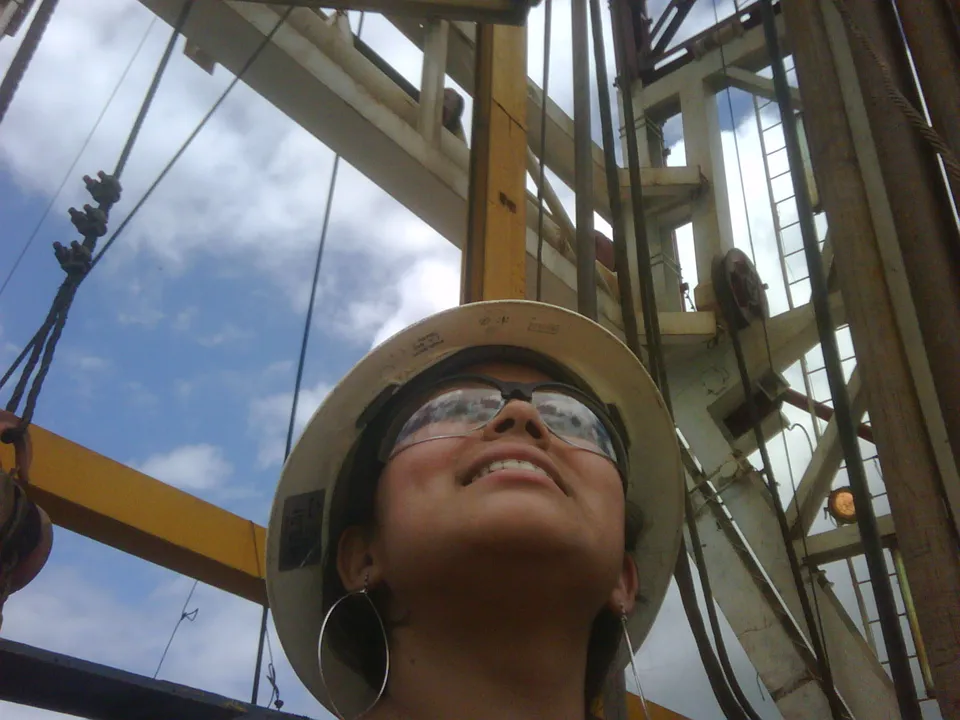
Hola hivers! En esta oportunidad me uno al concurso de @oscurity ¿Por qué me gusta Discovery-it? Creado En solidaridad con los venezolanos invitándolos a mostrar sus talentos. Decidí participar a través de uno de los míos: escribir.
No es un secreto que la situación económica en Venezuela es realmente difícil. Los empleados públicos ganan en moneda local un salario mínimo integral de 10 millones de bolívares, equivalentes a 3 dólares aproximadamente al momento de escribir este post. Paradójicamente, Venezuela es el país con las mayores reservas probadas de petróleo del mundo.
En la industria petrolera, se requieren varias etapas de procesamiento del oro negro, a saber: exploración, extracción, refinación y comercialización. Las primeras dos fases se realizan directamente en el yacimiento petrolero, mientras que las últimas 2 dependen de las refinerías.
Durante el año 2012 me encontraba realizando una investigación, junto a una colega, acerca de la industria petrolera en Venezuela, para lo que recurrimos a diversas fuentes documentales. Un día se nos ocurrió la idea de vivir la experiencia de conocer directamente el proceso de exploración del oro negro. Solicitamos el permiso correspondiente a Petróleos de Venezuela (PDVSA) y una vez obtenido, nos dirigimos a la población de El Furrial, ubicada en el estado Monagas.
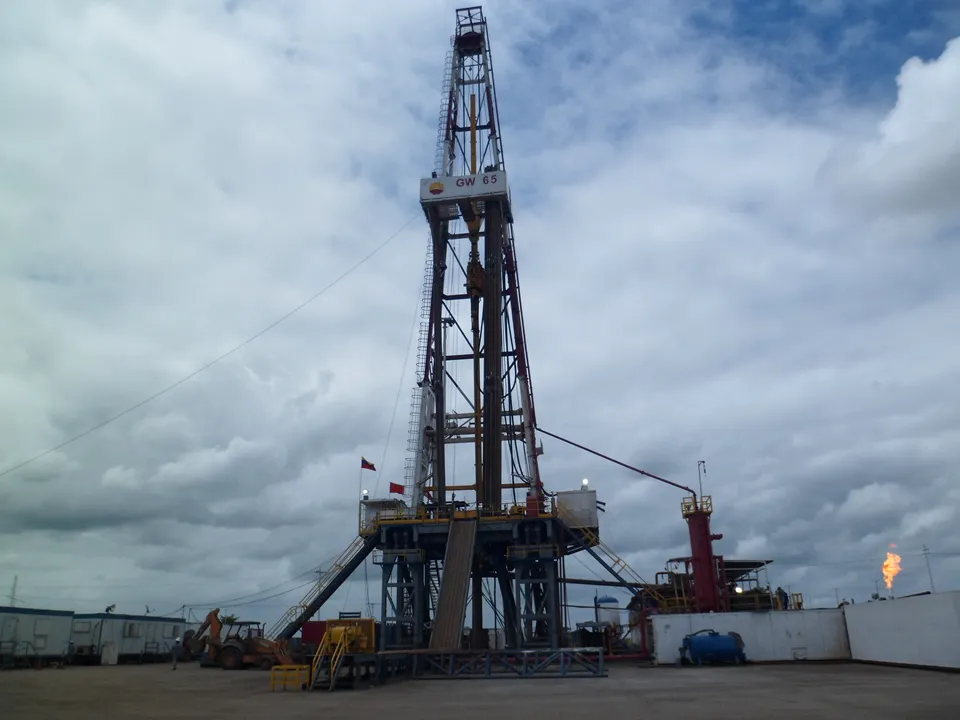
Para ingresar a las instalaciones del taladro debíamos utilizar botas de seguridad industrial, casco y lentes, por lo que nos correspondió cumplir con estas exigencias. Fue realmente impresionante la llegada al espacio: su altura y estructura metálica le brindan una imponencia majestuosa.
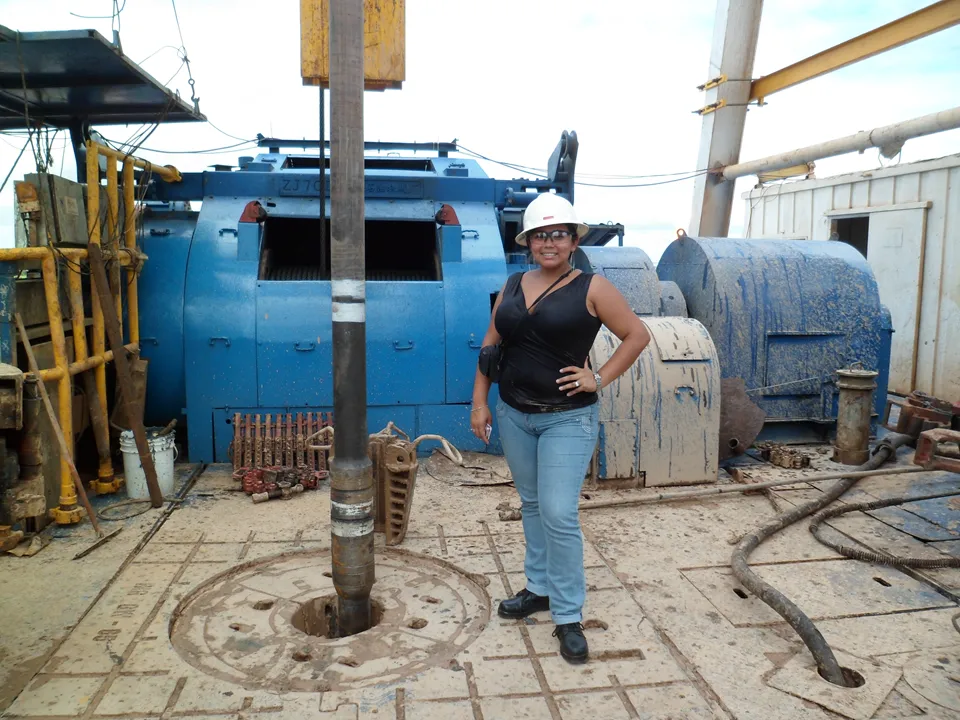
Tuvimos la oportunidad de entrevistar a algunos de los trabajadores, quienes nos explicaron que la función del taladro es perforar el subsuelo hasta encontrar el yacimiento petrolero. Para ello, utilizan lodo, al que le aplican algunos químicos para contribuir al descenso.
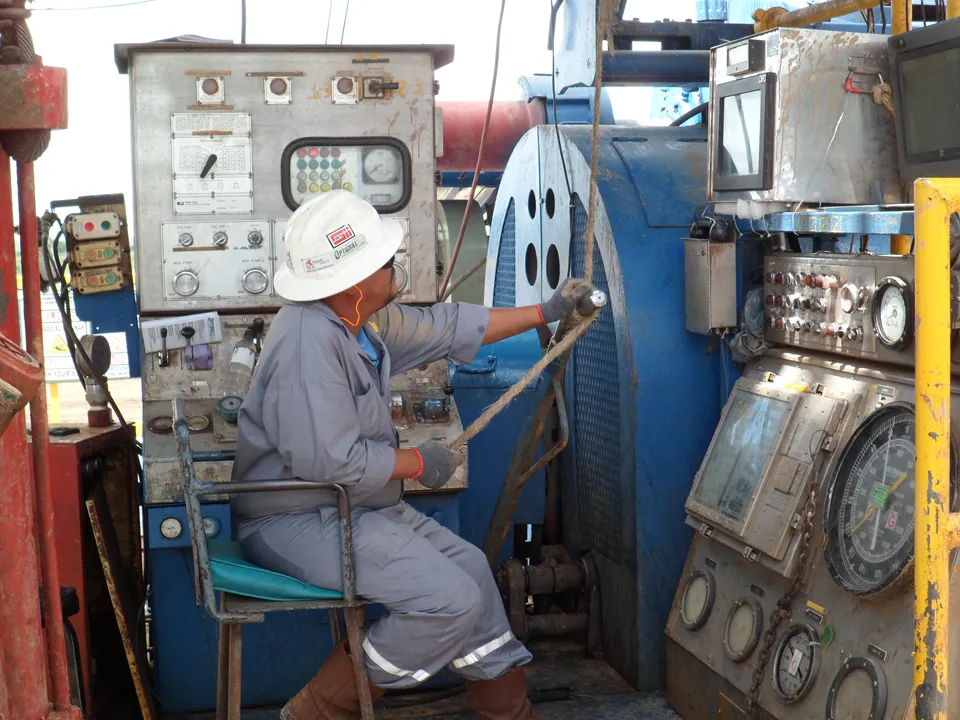
Una vez hallado el yacimiento, inicia la extracción del petróleo, para posteriormente ser trasladado hasta la refinería, donde a partir de procesos químicos –petroquímica- se producen combustibles, aceites y otros derivados del oro negro.
Subimos hasta la plataforma del taladro. Allí pudimos apreciar cómo los empleados están realizando su trabajo a gran altura y corren el riesgo de estar en el lugar de un incendio producto de los gases liberados del interior de la tierra por la perforación, aun cuando existen mecheros para su salida controlada. De hecho, hay especies de toboganes para descender rápidamente en caso de una emergencia.
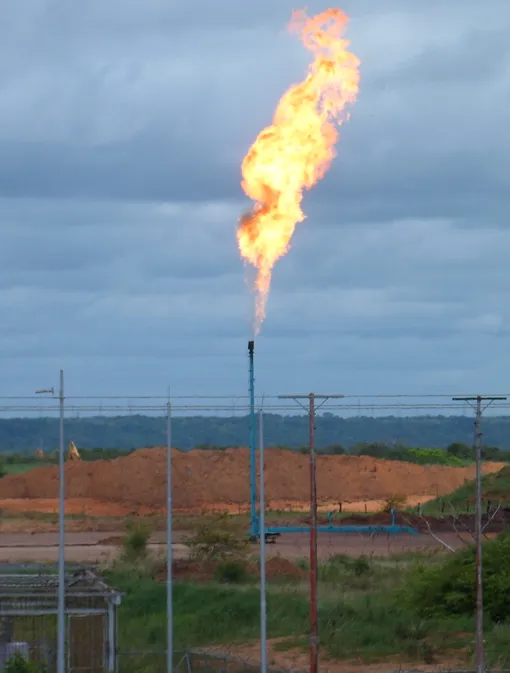
Nos comentaron que realizan simulacros de manera permanente para estar preparados ante cualquier emergencia. De su ocurrencia real, reportaron que muy pocas veces han tenido que vivirlas, pero que siempre están alertas y utilizan los equipos de seguridad de manera permanente.
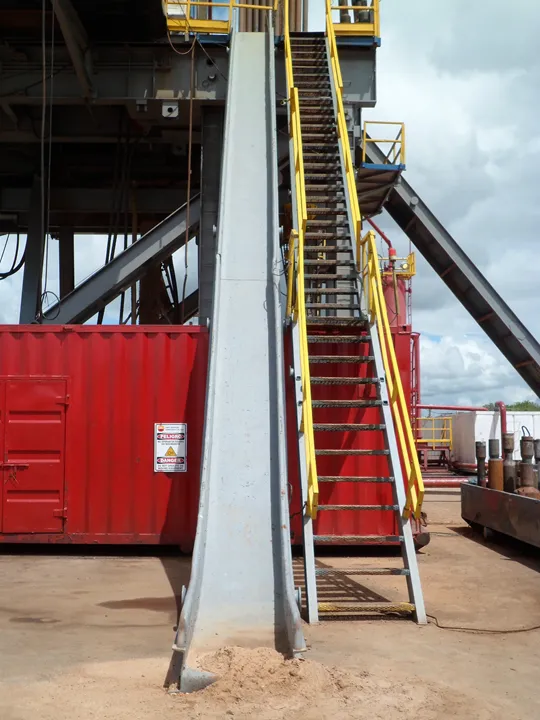
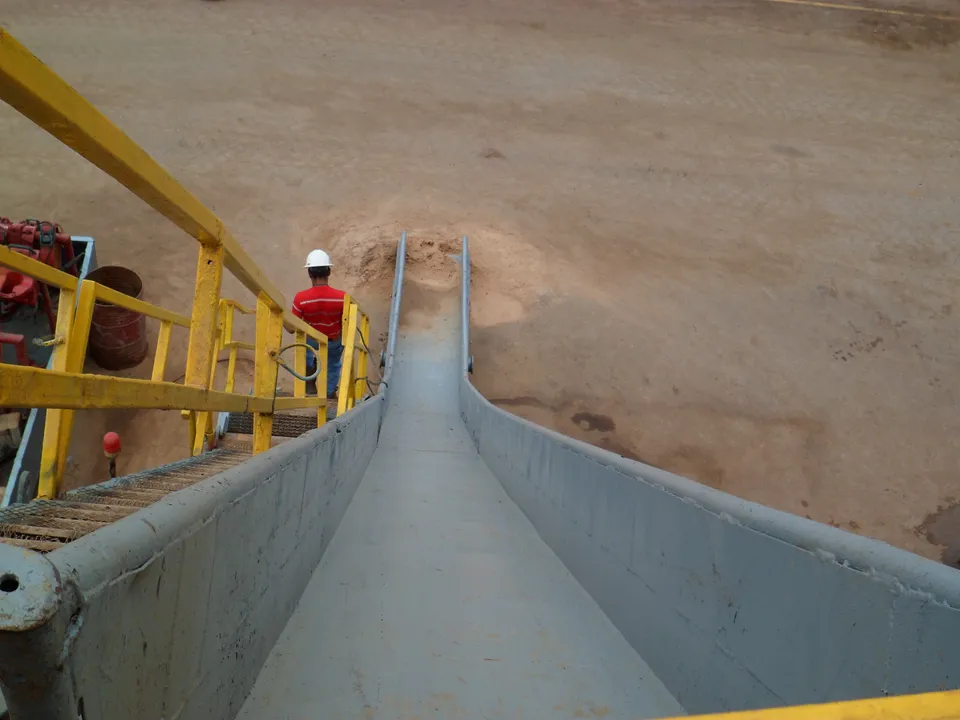
El petróleo mueve al mundo. Gracias a sus derivados se desplazan la mayoría de los medios de transporte. En Venezuela, el país con las mayores reservas del planeta, el oro negro ha servido de “Dios” y de “Diablo” al mismo tiempo. “De Dios” porque la ha proveído de riquezas económicas que la hicieron próspera durante buena parte de la segunda década del siglo XX; y de “Diablo” porque las malas políticas que se han perpetuado por años han abandonado otras formas de producción económica: el campo y el turismo, por solo mencionar algunas; y no solo eso, sino que la petroquímica solo llega hasta la producción de algunos combustibles y comercializan el barril de petróleo crudo en el mercado internacional.
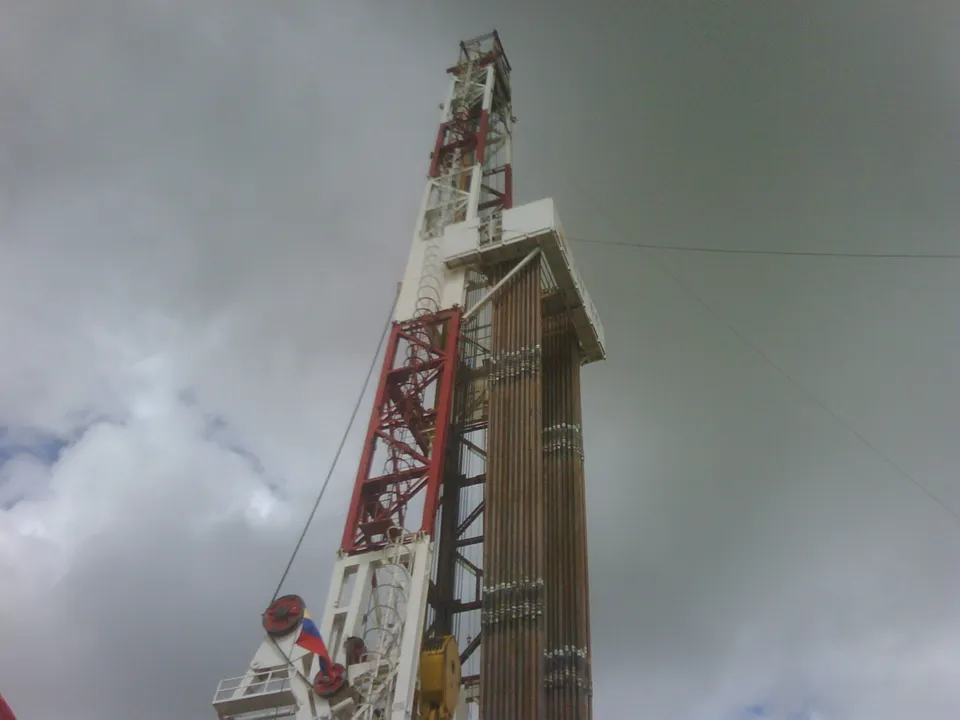
Esta experiencia me hizo sentir muy de cerca la existencia real de este recurso natural no renovable en mi país. Más allá de la teoría pude ver una pequeña parte del proceso de explotación petrolera. Conservo la esperanza de que pronto exista en Venezuela un cambio que potencie la industria petrolera y diversifique la producción económica.
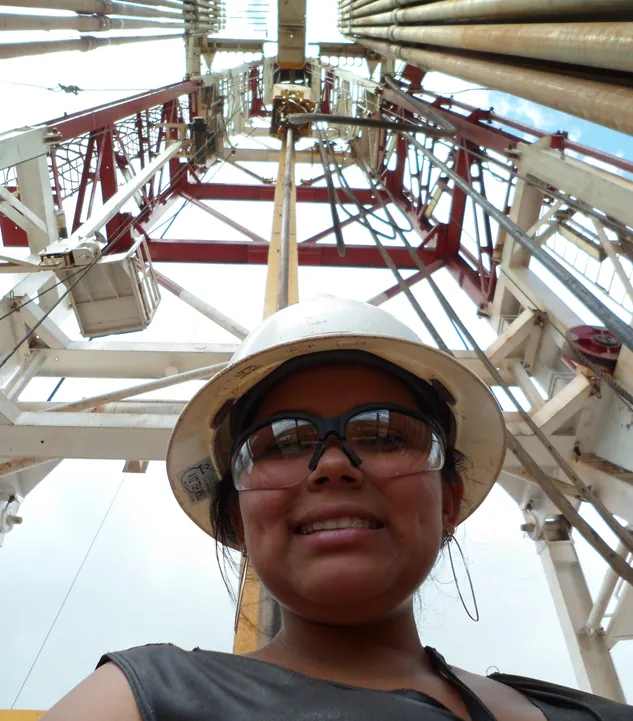
Nos encontramos en un futuro post.
English version
Hello hivers! This time I'm joining @oscurity's contest Why do I like Discovery-it? Created In solidarity with Venezuelans inviting them to show their talents. I decided to participate through one of mine: writing.
It is no secret that the economic situation in Venezuela is really difficult. Public employees earn in local currency an integral minimum wage of 10 million bolivars, equivalent to approximately 3 dollars at the time of writing this post. Paradoxically, Venezuela is the country with the largest proven oil reserves in the world.
In the oil industry, several stages are required to process the black gold, namely: exploration, extraction, refining and commercialization. The first two stages are carried out directly in the oil field, while the last 2 depend on refineries.
During the year 2012 I was conducting research, together with a colleague, about the oil industry in Venezuela, for which we resorted to various documentary sources. One day we came up with the idea of living the experience of knowing directly the exploration process of black gold. We requested the corresponding permit from Petróleos de Venezuela (PDVSA) and once obtained, we went to the town of El Furrial, located in the state of Monagas.

To enter the drilling facilities we had to wear industrial safety boots, helmets and glasses, so we had to comply with these requirements. It was really impressive to arrive at the space: its height and metallic structure give it a majestic imposing appearance.

We had the opportunity to interview some of the workers, who explained to us that the function of the drill is to perforate the subsoil until the oil deposit is found. To do this, they use mud, to which they apply some chemicals to help the descent.

Once the deposit is found, oil extraction begins, to be later transferred to the refinery, where fuels, oils and other derivatives of the black gold are produced from chemical processes -petrochemicals-.
We went up to the drilling platform. There we could see how the employees are working at high altitude and run the risk of being at the site of a fire due to the gases released from the interior of the earth by the drilling, even though there are lighters for their controlled exit. In fact, there are some kind of slides to descend quickly in case of an emergency.

We were told that they carry out drills on a permanent basis to be prepared for any emergency. They reported that they have rarely had to experience them, but that they are always alert and use safety equipment on a permanent basis.


Oil moves the world. Thanks to its derivatives, most of the means of transportation move. In Venezuela, the country with the largest reserves on the planet, black gold has served as "God" and "Devil" at the same time. "God" because it has provided it with economic riches that made it prosperous during a good part of the second decade of the 20th century; and "Devil" because the bad policies that have been perpetuated for years have abandoned other forms of economic production: the countryside and tourism, just to mention a few; and not only that, but petrochemicals only go as far as the production of some fuels and commercialize a barrel of crude oil in the international market.

This experience made me feel very closely the real existence of this non-renewable natural resource in my country. Beyond theory, I was able to see a small part of the oil exploitation process. I still hope that soon there will be a change in Venezuela that will strengthen the oil industry and diversify economic production.

See you in a future post.

